Nidhi Subbaiah Adds Glitz To ‘Manasayana-2023’
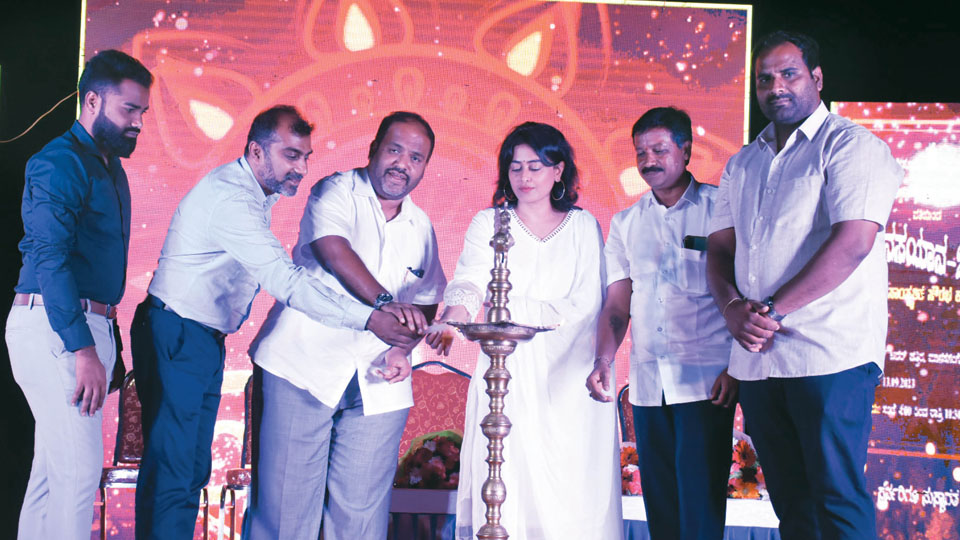
Mysore/Mysuru:
Sandalwood actress Nidhi Subbaiah added glitz and glamour to ‘Manasayana- 2023’, a cultural festival organised by University of Mysore Vidyarthi Okkoota in Manasagangothri campus here recently.
The students of various Departments showcased their talents in cultural programmes, as the fellow students among the audience, went gaga, shaking their legs to the foot tapping music, soaking in joy in the evening filled with music.
Speaking after inaugurating the programme, Nidhi Subbaiah said “I am reminded of my college days, as I studied in Sri Jayachamarajendra College of Engineering (SJCE) near the same campus. I was very lucky to pursue education in Mysuru.”
“Mysuru is the best city. Like you, I was also enjoying the cultural programmes during my student days. I am filled with energy upon seeing your love and affection. Watch my movies and support me,” said Nidhi Subbaiah.
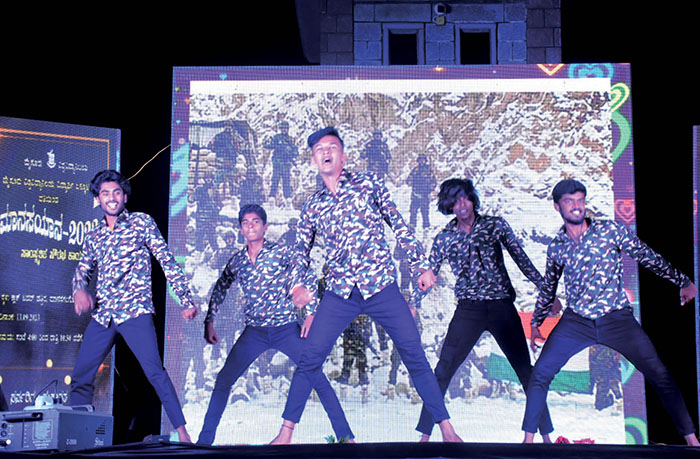
Asking the audience whether they want to be regaled with a film dialogue, Nidhi recalled the famous lines “Nimmannella Uddara Maduvudu Bittu Nangen Bere Kelsa Ilva. Gand Maklu Sahavasa Hagalella Upavasa” from her runaway hit movie Pancharangi, to the applause of the gathering.
Managing Director of Neurozone – Brain and Spine Care Dr. H.V. Shushrutha Gowda said “University of Mysore is one of the prestigious Universities and the alumni have been serving as doctors and scientists, besides decorating many top positions. Even my father Dr. H. C. Vishnumurthy studied in the same Varsity and founded the Gopala Gowda Shanthaveri Memorial Hospital 45 years ago. Our hospital has been catering to patients from rural areas to provide health service on priority.”
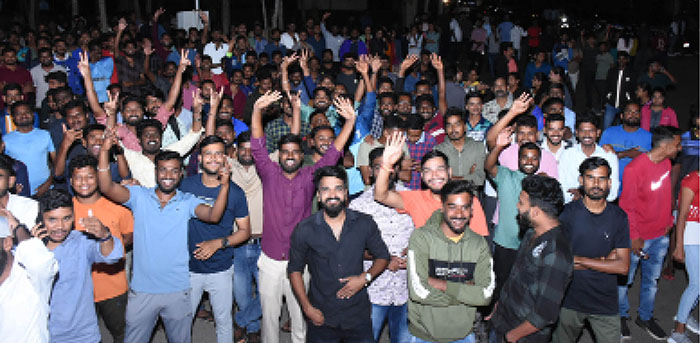
Dr. Shushrutha said, “I was in USA for a few years, where I had my higher education and returned to the country. The Super Speciality services were not easily available for rural people then, which pained me. To address the gap, I conducted 40 free health check-up camps to provide health services at the doorsteps of the people and also gave free super speciality services to about 10,000 people.”
Gundlupet MLA H.M. Ganesh Prasad said “One should put efforts at the student level to gain knowledge and education.”
A music album titled ‘Vishwa-guru Anna Basavanna’ of Girish Bendaravadi was also released on the occasion.
Former Syndicate Member of UoM Kumar, leader Harish Moganna, programme organiser Abhishek Palegar and Kaviraj were present.
source: http://www.starofmysore.com / Star of Mysore / Home> News / September 29th, 2023
29
Vietnamese coffee introduced at 5th World Coffee Conference & Expo in India
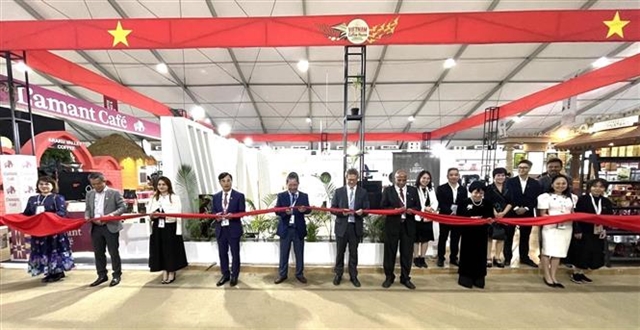
A Vietnamese pavilion with local major coffee brands opened at the 5th World Coffee Conference & Expo (WCC) in Bengaluru city, India.
New Delhi :
A Vietnamese pavilion with local major coffee brands opened at the 5th World Coffee Conference & Expo (WCC) in Bengaluru city, India, on Monday.
On display at the pavilion, which covers 144sq.m and is arranged by the Vietnam Coffee–Cocoa Association (VICOFA), are popular Vietnamese coffee products from major enterprises such as Trung Nguyên Group, L’amant Cafe, Olympics Coffee Joint Stock Company, and Vạn Thọ Import-Export Ltd Co.
Apart from attending the expo, Vietnamese exhibitors join all conferences and B2B meetings, and field trips to coffee factories in India.
India is identified as an important market for Vietnamese coffee exports, especially processed coffee products such as roasted, ground, and instant coffee. The VICOFA and Vietnamese businesses are planning to promote trade promotion activities, connecting and penetrating distribution chains in India with support from the Vietnamese Embassy in India.
The WCC has been held every five years since 2001, and the 5th WCC was delayed in 2020 due to the COVID-19 pandemic. Bengaluru is the first city in Asia to host the conference.
Taking place from September 25-28 with the theme “Sustainability through Circular Economy and Regenerative Agriculture”, the 5th WCC has seen about 2,000 delegates from more than 80 countries and territories. The WCC is an important forum for discussion and collaboration to build a sustainable coffee industry, from coffee beans to ready-to-drink coffee.
Representatives and owners of coffee start-ups, coffee roasters, speciality coffee growers, and small farmers with the best products also showcase their products at the event. — VNS
source: http://www.vietnamnews.vn / Viet Nam News / Home> Economy / September 26th, 2023
Puttur: St Philomena College student selected for Indian Army through Agnipath programme
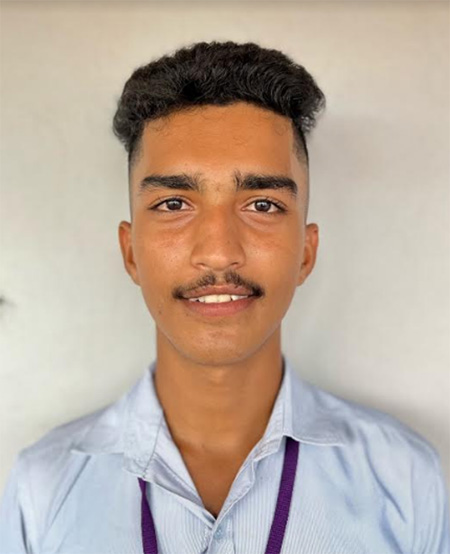
An aspiring student from IIBBA, St Philomena College, Len Biddappa, has achieved a remarkable feat by being selected for the Indian Army through the Agnipath programme, a Scheme approved by Government of India.
Len Biddappa, son of Nishant C M and Nalini, hails from the village of Nalvathoklu in Virajpet.
Educational journey of Len Biddappa has been one of dedication and hard work.
He completed his primary schooling at the Rotary School of Virajpet, followed by his high school education at Saint Ann’s English Medium High School. He continued his academic pursuit and completed his pre-university studies at Sai Shankar College in Ponnampet. Later he joined prestigious St Philomena College, Puttur for his BBA degree with a great enthusiasm.
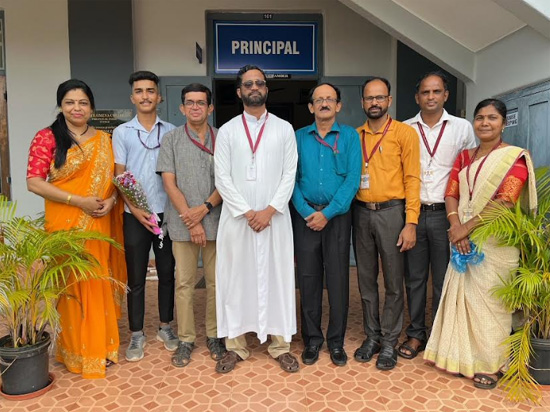
Dr Anthony Prakash Monteiro, the principal of the college, extended his heartfelt congratulations to Len Biddappa and expressed his appreciation for the role of Agnipath programme in nurturing the aspirations of the youth in serving the nation. He also emphasized the crucial role played by the youth in safeguarding the motherland and took pride in Len Biddappa’s selection as an Agni-Veer. Len Biddappa thanked the principal and the college for the support forming him to reach the goal he aspired for.
Eighteen year old Len Biddappa is set to embark on his training journey, which begins on September 26, symbolizing his commitment to serving the nation. During this momentous occasion, Prof Ganesh Bhat, Dr AP Radha Krishna, the vice principals, Dr Radhakrishna, the head of the department of BBA, assistant professors Prashant Rai, Pushpa and PRO Bharathi S. Rai were present along with the students of IIBBA to offer their good wishes.
source: http://www.daijiworld.com / Daijiworld.com / Home> Campus Beat / by Media Release / September 26th, 2023
Science Expo: Kodagu Model School Distributes Prizes
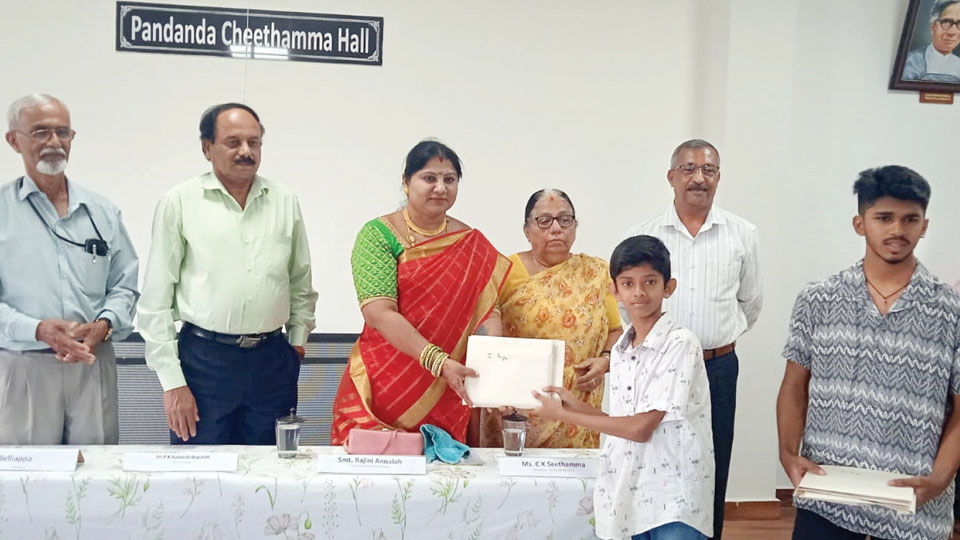
Mysore/Mysuru:
The two-day science exhibition, organised by Kodagu Model School of Sri Kavery Kodava Association (Mysuru East) at its premises in Vidyashankar Layout concluded yesterday.
Corporator Rajini Annaiah distributed prizes to the winners at the valedictory function held at Smt. Padanda Cheethamma auditorium at the School.
Winners
7th and 8th std. category:
First prize : Vijaya Vitala School (Gyroscopic transport model); Second – Vijaya Vitala School (Ambitious vehicle model).
9th and 10th std:
First prize – Vidya Jyothi School (Vikram Lander model); Second – SNS School (Free electric generator model). Students of Kodagu Model School bagged special prizes in both categories.
Speaking after distributing the prizes, Corporator Rajini Annaiah said that all the models which were displayed at the expo were attractive and added that this type of science expos would help in the development of knowledge among students.
Pointing out that excellent environment and best education is provided for students at this School, the Corporator suggested the School management to start PU education too.
Kodagu Model School Chairperson C.K. Seethamma, who too spoke said that the science exhibition was a success and advised the students to develop scientific attitude and logical thinking.
Sri Kavery Kodava Association (Mysuru East) Vice-President P.K. Bopaiah, Secretary K.M. Belliappa, Treasurer C.M. Chengappa, School Administrator Cauvery, students and parents were present on the occasion.
source: http:/www.starofmysore.com / Star of Mysore / Home> News / September 25th, 2023
India showcases thriving coffee industry at World Coffee Conference
The Indian coffee market amounts $0.5 billion in 2023, and is expected to grow at 9.04% CAGR.
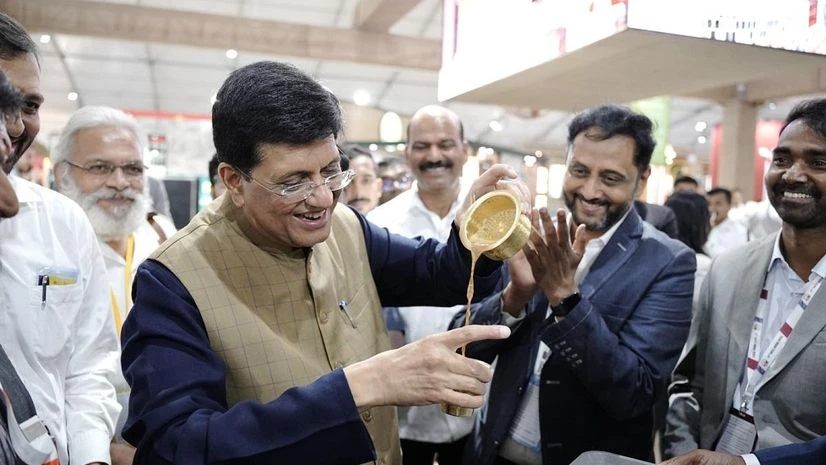)
Coffee enthusiasts and stakeholders worldwide have gathered in Bengaluru for the fifth World Coffee Conference (WCC) 2023.
The four-day event, happening once every four years and being hosted in India for the first time, aims to discuss sustainability through circular economy, regenerative agriculture, and innovation within the coffee industry. The conference has attracted more than 24,000 delegates from over 80 countries.
Major players in the Indian coffee landscape, including Nestle India , Tata Coffee, and Bru, as well as artisanal brands like Blue Tokai and Narasu’s Coffee, are participating. The event serves as a platform for Indian coffee growers and makers to discuss financing mechanisms, quality control, startup innovations, and trade opportunities.
Matt Chitharanjan, co-founder and chief executive officer at Blue Tokai Coffee Roasters, commented on the significance of the event. “The WCC is unique in its focus on coffee-producing nations, offering India an excellent opportunity to showcase its growing coffee community and industry advancements,” he told Business Standard.
According to Statista, the Indian coffee market is worth $0.5 billion in 2023 and is expected to grow at a compounded annual growth rate of 9.04 per cent until 2028. To further highlight India’s coffee production, the event has organised tours to coffee plantations in Coorg, Chikkamagalur, and Kodagu Valley.
Piyush Goyal, Minister of Commerce and Industry, emphasised the conference’s commitment to sustainable practices. “As we gather in Bengaluru, the WCC underscores the critical importance of sustainability, waste reduction, and inclusivity in shaping a greener future for the coffee industry,” he said.
An exhibition displaying the entire coffee value chain, from bean to cup, has been set up, drawing considerable interest from attendees. Pavilions representing India’s major coffee-growing states, such as Karnataka, Kerala, and Tamil Nadu, showcase the diverse range of coffee produced in the country.
A spokesperson from Nestlé India, the makers of the Nescafé brand, also expressed support for the WCC’s mission. “We are fully aligned with the WCC’s efforts to build a sustainable coffee industry that focuses on circular economy and regenerative agricultural practices,” they stated.
The WCC is a collaborative effort involving the International Coffee Organization, the Coffee Board of India, the Ministry of Commerce and Industry, the Government of Karnataka, and various stakeholders in the coffee industry.
source: http://www.business-standard.com / Business Standard / Home> Industry> News / by Akshara Srivatsava, New Delhi / September 27th, 2023
Saswata Banerjee appointed GM of The Tamara Coorg
Banerjee’s professional journey has taken him across diverse properties in Asia, ..
Kodagu Cup Golf Tournament
The Association of Kodagu Golfers of J.W. Golf Club, Mysuru, will be holding the 22nd edition of Kodagu Cup Golf Tournament at JWGC premises in city on Oct. 7 and 8.
For details, contact Association Hon. Treasurer M.B. Nanaiah on Mob: 94486-02959, according to a press release from Association President Dr. P.A. Kushalappa.
source: http://www.starofmysore.com / Star of Mysore / Home> In Briefs / September 23rd, 2023
Hockey Players Selected For School Nationals, Gwalior
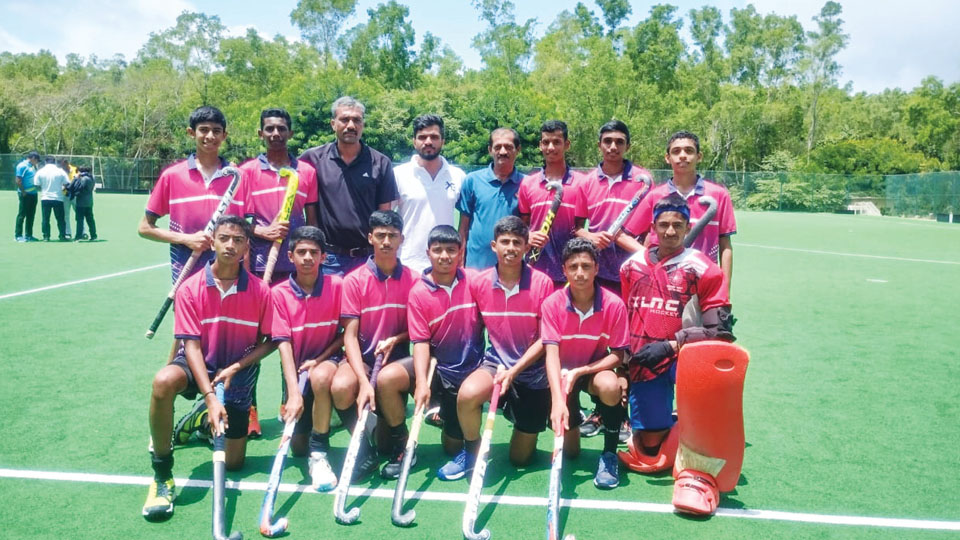
Twelve players from Sports Hostel, Ponnampet, Kodagu District, winners of U-17 State Level Hockey Championship, have been selected for School Games Federation of India (SGFI) School Nationals which will be held in Gwalior, Madhya Pradesh in October 2023. The students come under the Mysuru Division.
The winning Mysuru Division team bagged laurels at the matches that were held between Sept. 8 and Sept. 10, 2023 at Sports School, Kudige.
While in match no.1, the Mysuru Division scored 8-0 goals against the Bengaluru Division, in match no.2, the Mysuru Division scored 10-0 against the Belagavi Division.
The winning streak continued in match no.3 where the Mysuru Division scored 3-0 against Sports School, Kudige, and in the last match, the Mysuru Division scored 6-0 against Kalaburagi Division.
The team proceeding to Gwalior includes Thanish Madappa, H.H. Deekshith, M. Nishanth, Pavan Ponnanna, Sohan Cariappa, B.P. Mohan, Vashik Ponnanna, Thanish Thammaiah, A. Mayur, C.M. Devaiah, Binn Bopanna and Krashank Kalappa.
The team coaches are K.M. Subbaiah and M.B. Ganapathy.
source: http://www.starofmysore.com / Star of Mysore / Home> Sports / September 22nd, 2023

